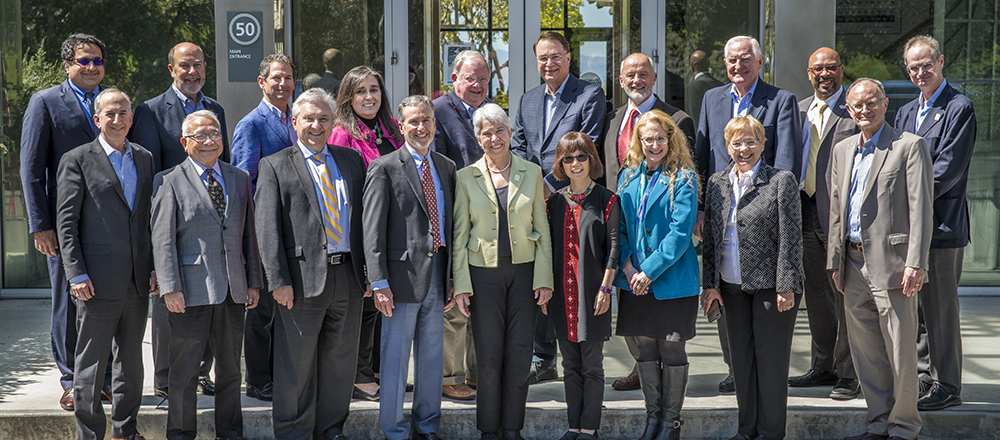
We’re all familiar with the Lab’s leadership and its oversight relationships, including the University of California and the U.S. Department of Energy. You might not know that Berkeley Lab’s director also has a high-level team of advisors.
The Lab Advisory Board is made up of 15 distinguished scientific leaders from outside the Lab, appointed to renewable three-year terms by the UC President. Officially the Board reports to the UC Regents, but its most important role is to advise the Lab Director on the scientific and operational directions of the Lab.
The interim VP of UC National Laboratories (UCNL), Craig Leasure, serves as an ex officio member of the Board and as the conduit to UC’s President and Regents.
We asked Lab Director Mike Witherell to explain why the Board’s expert advice is important to the Lab and its mission.
Elements: What is the board’s role, and how does it work with Lab’s leadership?
Mike Witherell: Our Board advises the UC Regents, and me. We have scientific advisory committees for many parts of the lab, but the Board takes a high-level view of our strategy and management. We meet twice a year. We try to present enough information about the most critical strategic issues, so they understand the opportunities and challenges the laboratory is facing, and they give us their expert advice on these from their outside perspectives.
Elements: Who is on the board, and what perspectives do they bring?
Mike: We have distinguished scientists and scientific managers, former lab directors, a former DOE deputy secretary, and industry representatives. The newest members are Michael McQuade, VP for research at Carnegie Mellon; Susan Avery, President Emerita of Woods Hole Oceanographic Institution; and Jo Handelsman, director of the Wisconsin Institute for Discovery and former White House science advisor. She’s co-chair with Chuck Shank, a former LBNL director. We make sure members represent a variety of scientific disciplines.
Elements: Why is it important that the Lab have advisors of this caliber?
Mike: Being a lab director is an unusual job. There aren’t many people who face similar challenges. It’s very easy to sink into a bubble in which you’re only hearing your own people’s perspectives. It’s important to make sure you have an outside perspective of what the Lab is doing and how it fits into the national enterprise, and its impact.